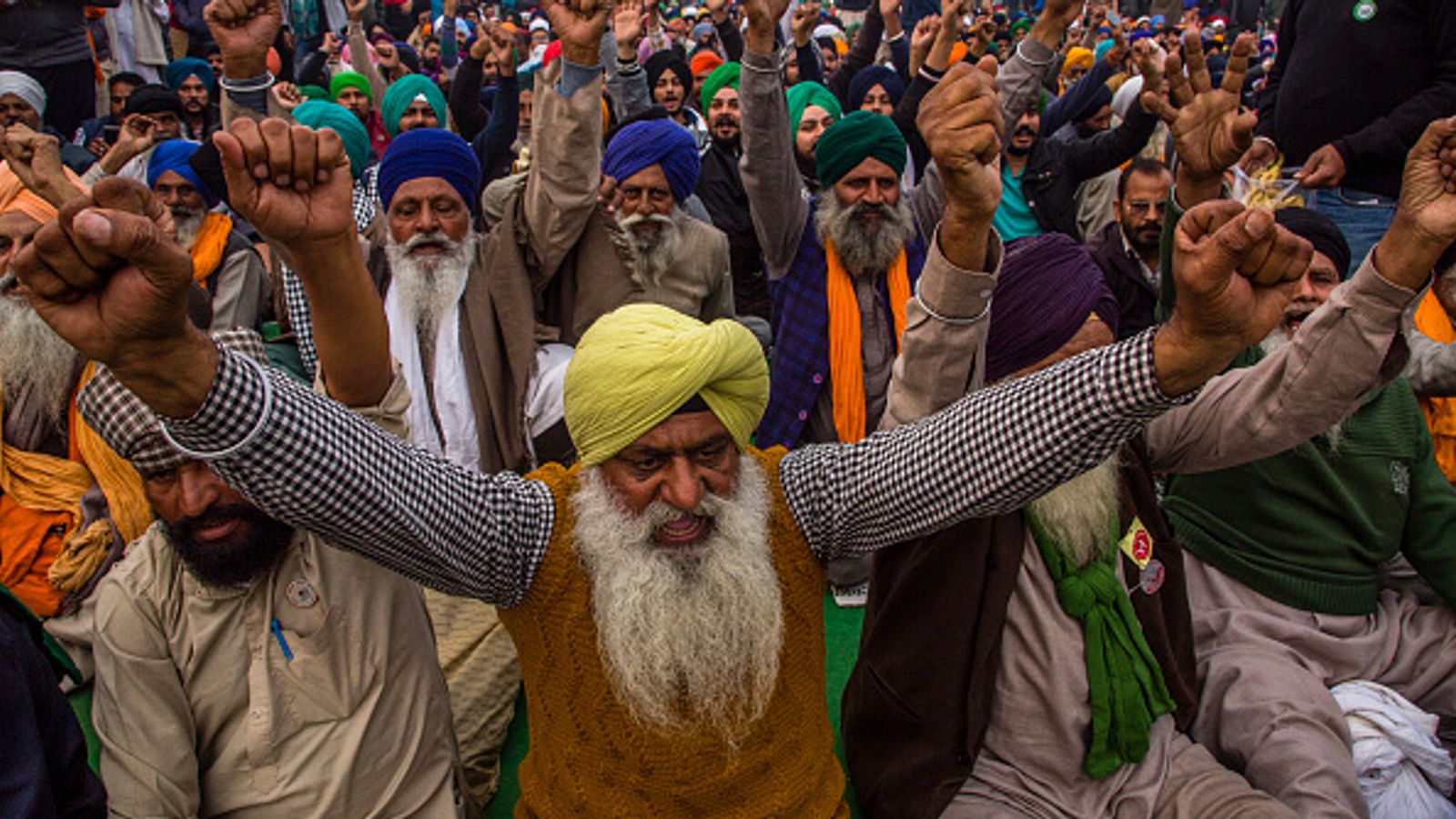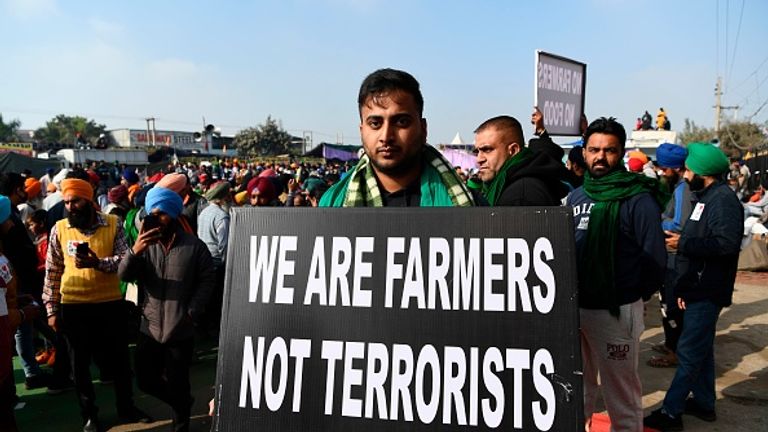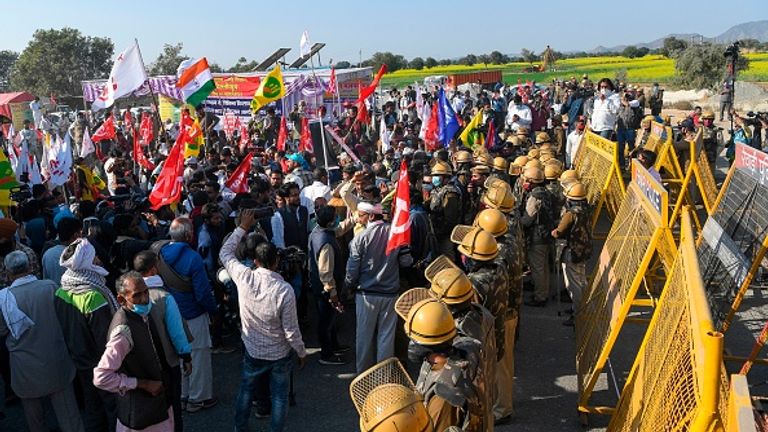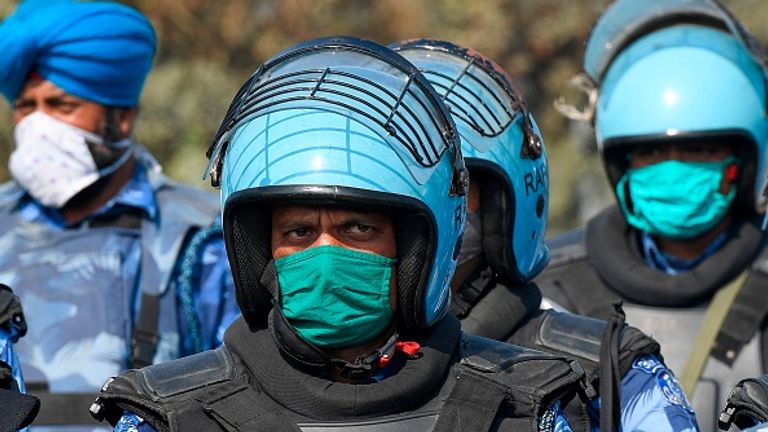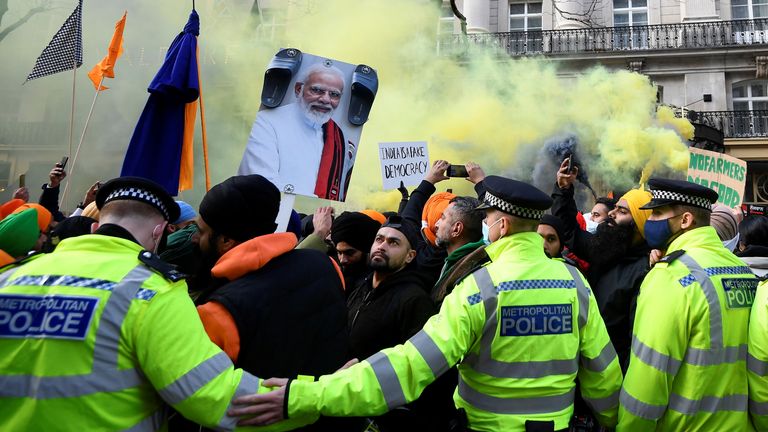Protests are continuing to grow over controversial new farming laws in India – but the country’s prime minister is refusing to back down.
Demonstrations have been taking place across India and have now spread to other cities around the world, including the UK, the Netherlands and Canada.
Farmers say the three federal laws, which deregulate crop pricing, will reduce their earnings by dismantling the system that guarantees them an income and leave them vulnerable to large private companies.
Key roads around the capital New Delhi have been shut off in recent weeks as thousands of farmers camp out, and more from around India are descending on the city to try to force a U-turn.
Police have put up barricades to stop farmers entering the city in large numbers and earlier this week there was a nationwide strike over the issue.
At least 30 farmers’ unions are protesting against the changes but Prime Minister Narendra Modi is holding firm.
The government argues the laws will abolish middlemen and improve farmers’ incomes as they will have a wider market to sell to.
Mr Modi said on Saturday that the changes would help “draw investment in agriculture and benefit farmers”.
“The aim of the all government reforms is to make farmers’ prosperous,” he told the annual meeting of the Federation of Indian Chambers of Commerce and Industry.
Piyush Goyal, the trade minister, said the government was committed to doubling farmers’ income and claimed the protests had been “infiltrated by leftists and Maoists.”
Talks between the government and unions have so far failed to find a solution and opposition groups say demonstrations will intensify.
“Hundreds of farmers will launch a tractor trolley march to New Delhi to voice our grievances against the new laws,” said Kamal Preet Singh Pannu, a leader of the Sanyukta Kisan Andolan group.
“[The] government wants to discredit and crush our movement, but we will continue to protest peacefully,” he said.
In the UK on Saturday, thousands gathered in convoy from many northern and Midlands cities and headed to the Indian High Commission in Birmingham.
The Kisaan rally caused serious congestion in an around England’s second city, with police warning people to stick to social distancing and complaining that some had illegally set off “smoke devices”.
Last weekend, London also saw large numbers protest in the centre of the capital, displaying signs saying “No Farmers No Food” and others criticising Prime Minister Modi.
All major Indian opposition political parties have come out in support of the strike.
Dozens of UK MPs, led by the Labour Party’s Tanmanjeet Singh Dhesi, are also backing the farmers, asking Foreign Secretary Dominic Raab to raise the matter with Delhi.
Canadian leader Justin Trudeau has also spoken out, calling the situation “concerning” and defending the farmers’ right to protest.
